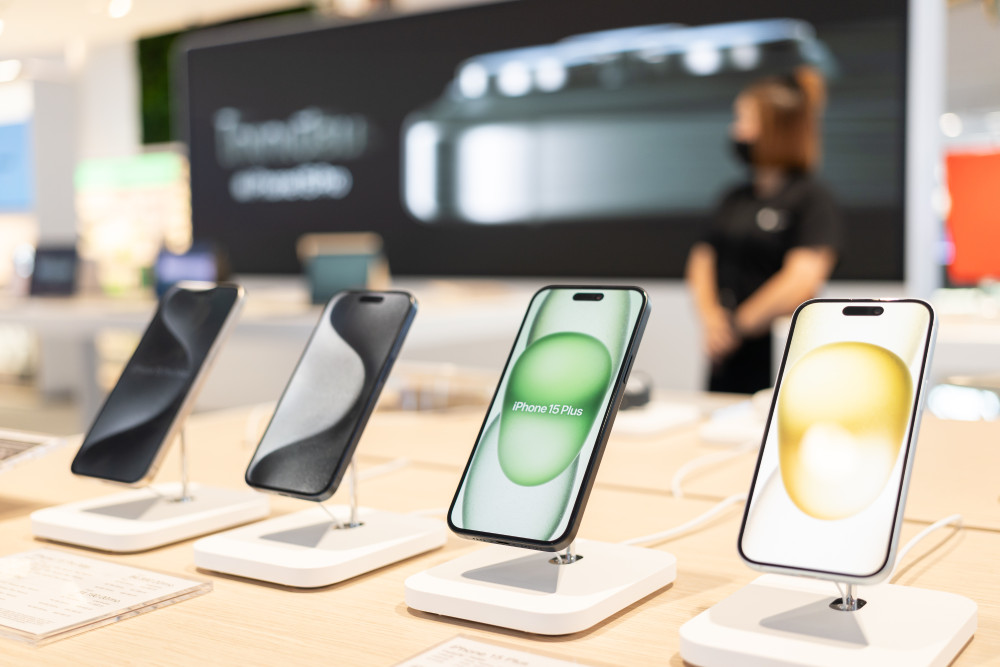
Apple (AAPL) sales are at risk as analysts say higher iPhone prices are likely on the way. But in the long term, the company looks solid simply because smartphones aren’t going anywhere.
On its most recent earnings call, Apple said tariffs would likely add $900 million in costs for the June quarter. CEO Tim Cook didn’t confirm any price hikes but left the door open.
“We have nothing to announce today,” Cook said when asked about pricing. He added that Apple will continue to manage its supply chains “to the degree that we can.”
But analysts aren’t ruling out an increase. Srini Pajjuri at Raymond James said a price hike on the iPhone is now their base case.
“Looking ahead, our base case is for Apple to raise prices, which should help offset the tariff impact to some extent,” Pajjuri said.
Even after the recent 90-day pause on new tariffs, the effective rate on Chinese goods is still 39%, according to Evercore ISI. That means Apple will likely have to pass at least some of those costs on to customers.
And while most people won’t love the idea of paying more than $1,000 for a new iPhone, the reality is that Apple has room to raise prices.
The company has an estimated 1.4 billion active iPhone users around the world. For many of them, the phone is a necessity, not a luxury.
As Wall Street Journal columnist Dan Gallagher put it,“Necessity is the mother of Big Tech’s resilience.”
If iPhone sales stall, services may pick up the slack
Apple stock is down more than 15% this year as a resul of trade war jitters and their potential impact on Apple’s supply chains.
But analysts at Morningstar believe Apple is still fairly valued and expect the company to hold up over time, especially if it can work its way around the steepest tariffs in the long run.
“Our base case remains for Apple to earn a long-term exemption from tariffs,” wrote Morningstar’s William Kerwin.
Morningstar doesn’t expect Apple to absorb all the added costs, and like Raymond James, it expects some of the tariff costs to show up in higher phone prices.
If the American consumer can accept the new price tag, that’s not necessarily a bad thing. iPhone sales are projected to grow 6% over the next five years, helping push Apple’s total growth to around 7% a year through 2029.
Meanwhile, Apple’s services business — which includes subscriptions, the App Store, and iCloud — is growing faster than its hardware segment and has much better margins.
In the first half of the year, services revenue grew nearly 13%, with margins of 75%, compared to just 2% growth in hardware, which has margins closer to 38%.
Even if hardware sales slow down, that services boost could help keep Apple on track.
Your email address will not be published. Required fields are markedmarked